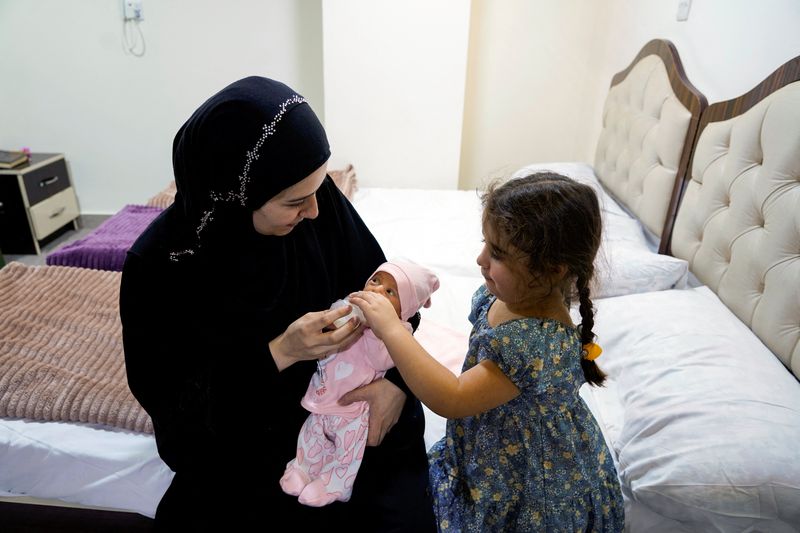NAJAF, Iraq (Reuters) - Lubana Ismail had just fled her village in southern Lebanon with her husband and two children when she went into labour. She had swollen veins in her uterus and needed immediate medical supervision to give birth safely.
They searched for a hospital in Beirut or Sidon that would admit her, but all were full of the dead and wounded.
"No hospital accepted me. We were turned away everywhere until my father suggested we go to Iraq," she recounted.
So they boarded a flight and flew to Najaf. It was there, in a Shi'ite pilgrimage city in a former war zone 1,000 km (600 miles) from home, that Lubana finally gave birth to baby Zahraa, healthy and safe.
The proud father, Fouad Youssef, recounted the perils of their evacuation.
"At first, we went to Tyre, but a strike hit directly next to us. We decided to go to Beirut, thinking it would be safer, but even on the way, a strike hit near us,” he said.
"During our two days of displacement, I tried to get my wife into a hospital because her labour was difficult. But due to the high number of injuries and martyrs, there were no vacancies."
More than a million Lebanese have fled their homes since Israel intensified its airstrikes and launched a ground campaign in southern Lebanon against the Hezbollah movement which has been striking Israel in solidarity with the Palestinians.
Imran Riza, U.N. humanitarian coordinator, said the pace of displacement since Sept. 23 had exceeded worst case scenarios, and too much damage was being done to civilian infrastructure.
Najaf, which accepts millions of Shi'ite pilgrims a year, is accustomed to handling the emergency medical needs of foreigners, and Iraqis have endured almost two decades of war at home. But receiving refugees from Lebanon is unexpected. Iraq's interior ministry says around 5,700 Lebanese have arrived so far.

Lubana and Fouad are grateful to have found a safe place to bring their family and give birth to their daughter. But they have no idea what will come next.
"We are afraid the war will go on for a long time. What will happen to our children? We were preparing them for school, but now there is no education. Are we going to stay here? Are we leaving? Are we going back to our country?" pondered Youssef, watching news of the destruction in Lebanon on his mobile screen.